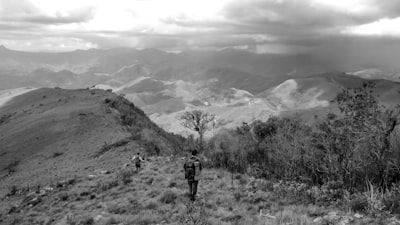Abstract
This article critically examines the narrative of an Irish man’s survival after falling on Mount Rinjani, as reported in the Indonesian health news outlet detikHealth. The discussion unpacks key concepts such as survival behaviors, risk management in wilderness settings, and cross-cultural experiences in outdoor adventure tourism. The analysis situates the incident within broader academic discourses on outdoor safety, psychological resilience, and the globalization of adventure tourism, drawing on empirical research and established theoretical frameworks.
Background or Context
Mount Rinjani, located in Lombok, Indonesia, is one of Southeast Asia's most popular trekking destinations, famed for its challenging terrain and scenic views. It attracts thousands of international and domestic tourists annually (Syamsiah et al., 2020). Adventure tourism—often encompassing physically demanding activities in remote natural settings—has risen globally, bringing both economic benefits and heightened safety challenges (Buckley, 2012). Incidents involving foreign tourists underscore the complexities of cross-cultural navigation, preparedness, and emergency response in unfamiliar environments.
Analysis and Discussion
Key Concepts and Actions
The headline’s key terms include 'survival,' 'fall,' 'Mount Rinjani,' and techniques of endurance. Survival, in this context, denotes actions taken under life-threatening conditions to sustain life until rescue or self-extraction is possible (Gonzalez, 2003). The main subject is an Irish male trekker, with the critical action being his fall and subsequent autonomous efforts to survive.
Broader Academic Context
- Historical Perspective: Human survival stories in extreme environments are well documented, from Ernest Shackleton's Antarctic ordeal to modern-day adventure mishaps. Such narratives frequently spotlight the interplay of psychological resilience, local knowledge, and environmental risk (Leach, 2016).
- Social and Scientific Perspective: With the democratization of international travel, adventure tourists are often exposed to unfamiliar hazards—including language barriers and differing safety standards (Pomfret, 2016). Psychological research suggests that survival situations activate stress responses, enhancing certain cognitive functions, while also requiring the management of fear and fatigue (Gailliot et al., 2007).
Causes, Effects, and Consequences
- Causes: Possible contributing factors to accidents in outdoor tourism include insufficient preparation, underestimating local terrain, lack of acclimatization, and inadequate briefing or support services (Mak, 2017).
- Effects: Survivor stories often catalyze the dissemination of practical survival strategies. Common recommendations for mountainous terrain include conserving energy, seeking shelter, rationing food and water, and improvising first aid—practices likely undertaken by the individual in question (Gonzalez, 2003).
- Consequences: Media coverage of such incidents can influence both policy—such as stricter safety regulations or the deployment of multilingual guides—and perceptions of risk among potential tourists. It may also serve as a learning tool for broader audiences interested in outdoor safety and adventure ethics.
Scholarly Perspectives and Real-World Examples
Research on outdoor adventure mishaps points to the effectiveness of pre-trip orientation, the role of guides, and emergency preparedness as key factors reducing serious incidents (Beedie, 2008). Real-world parallels, such as the well-publicized survival of lost trekkers in the Himalayas or the Andes, reinforce the universality of adaptive problem-solving and the critical role of local support networks.
Conclusion
The incident involving the Irish man’s fall on Mount Rinjani serves as an instructive case for examining the dynamics of survival, cultural adaptation, and international safety practices in adventure tourism. It underscores the necessity for robust risk awareness, the efficacy of psychological resilience in life-threatening situations, and the importance of integrating local knowledge into global tourism frameworks. Future research could examine how transnational experiences shape outdoor safety policies and the mechanisms by which such narratives influence public attitudes toward adventure travel.
This article was inspired by the headline: 'Cerita Pria Irlandia Pernah Terjatuh di Gunung Rinjani, Begini Caranya Bertahan Hidup - detikHealth'.

Comments
No comments yet. Be the first to comment!